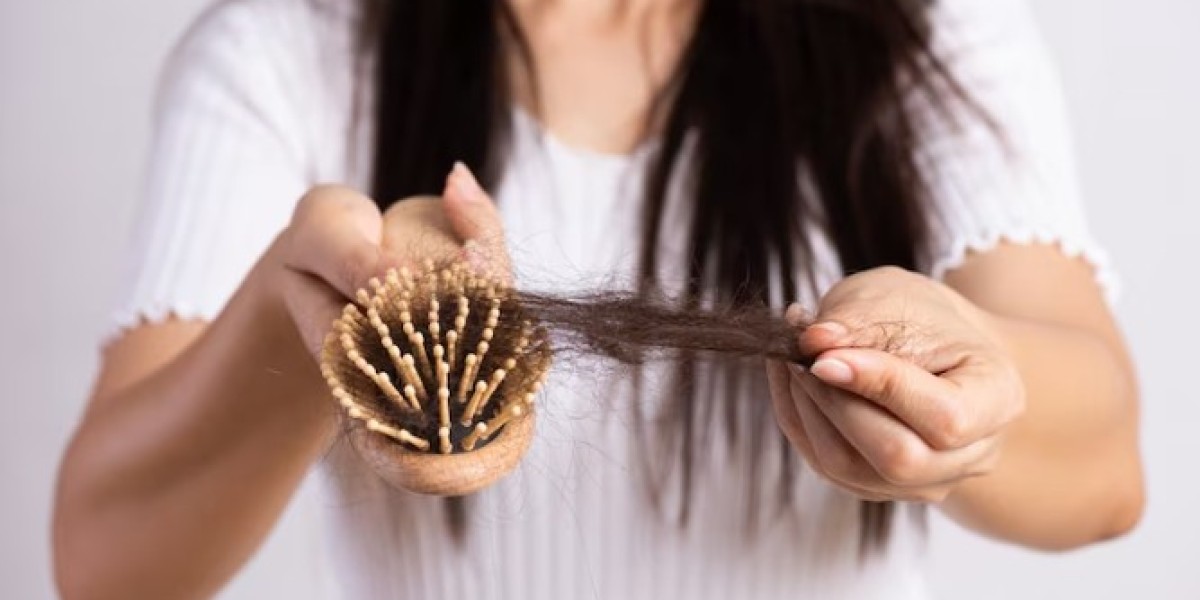Introduction:
Hair fall is a common concern that affects both men and women alike. The lustrous crown of hair is not only a symbol of beauty but also holds significance in one's self-esteem and identity. While hair fall is a natural process, excessive shedding can lead to distress and anxiety. Understanding the underlying causes and exploring gender-specific treatment approaches is crucial in addressing this issue. In this comprehensive guide, we delve into the differences between hair fall treatments in Bangalore available.
Hair Fall Causes in Men and Women:
Men:
Male pattern baldness, also known as androgenetic alopecia, is the most common cause of hair fall in men. It is characterized by a receding hairline and thinning at the crown. Genetics plays a significant role in male pattern baldness, as the condition is inherited from both sides of the family. The hormone dihydrotestosterone (DHT) also contributes to hair follicle miniaturization, leading to hair thinning and eventual loss.
Women:
In women, hair fall is often driven by a broader range of factors. Hormonal imbalances, such as those occurring during pregnancy, childbirth, and menopause, can lead to temporary hair loss. Polycystic ovary syndrome (PCOS) is another hormonal condition that can trigger hair fall. Additionally, excessive hairstyling, frequent use of heating tools, and harsh hair treatments can damage the hair shaft and contribute to hair breakage.
Hair Fall in Men: Unmasking the Common Culprits
Genetics: Male pattern baldness, also known as androgenetic alopecia, is one of the leading causes of hair loss in men. It is inherited and typically results in receding hairlines and bald spots on the crown.
Hormones: Elevated levels of dihydrotestosterone (DHT), a hormone derived from testosterone, can shrink hair follicles in genetically susceptible men, leading to gradual hair thinning.
Age: As men age, the rate of hair growth slows down, and hair follicles become more susceptible to the effects of DHT.
Hair Fall in Women:
Hormonal Changes: Women experience various hormonal fluctuations throughout their lives, such as pregnancy, childbirth, and menopause. These changes can trigger temporary hair loss due to disruptions in the hair growth cycle.
Polycystic Ovary Syndrome (PCOS): This hormonal disorder can cause excessive hair thinning in women due to increased androgen levels.
Stress and Diet: Emotional and physical stress, combined with an inadequate diet, can contribute to hair fall in women.
Treatment Approaches:
Men:
For men experiencing male pattern baldness, there are several treatment options available. One of the most common is minoxidil, a topical solution that promotes hair growth and slows down hair loss. Finasteride, an oral medication, helps inhibit the production of DHT, thereby preventing further hair follicle damage. Hair transplant surgery is also a popular choice, involving the transplantation of healthy hair follicles to thinning or balding areas.
Women:
Treating hair fall in women requires a more holistic approach. Addressing underlying hormonal imbalances is crucial, often through medications like birth control pills or anti-androgen drugs. Topical minoxidil is also effective for women, promoting hair regrowth and thickness. Platelet-rich plasma (PRP) therapy is gaining popularity as a natural and non-invasive treatment option. It involves injecting the patient's own platelet-rich plasma into the scalp to stimulate hair follicles.
Dr. Shahid Shamsher: Your Partner in Hair Loss Treatment in Bangalore:
When it comes to effective and personalized hair loss treatment in Bangalore, Dr. Shahid Shamsher stands out as a trusted and experienced dermatologist. With a deep understanding of the complexities of hair fall in both men and women, Dr. Shamsher offers a range of advanced and evidence-based treatment options tailored to individual needs.
Dr. Shahid Shamsher's approach to hair fall treatment encompasses a thorough evaluation of the underlying causes, allowing for a targeted and effective treatment plan. With a focus on combining medical expertise with state-of-the-art techniques, Dr. Shamsher provides solutions that not only promote hair regrowth but also enhance overall hair health.
Whether you're struggling with male pattern baldness or seeking specialized care for female hair loss, Dr. Shahid Shamsher's clinic in Bangalore offers a welcoming and supportive environment. With a team of dedicated professionals and a commitment to delivering exceptional results, Dr. Shamsher's clinic is a beacon of hope for those seeking transformative hair loss treatment in Bangalore.
Conclusion:
Hair fall in men and women may have different underlying causes, but effective treatment options are available for both genders. Understanding these distinctions and seeking the guidance of a skilled professional like Dr. Shahid Shamsher can pave the way to healthier, fuller hair. Remember, hair fall is a common concern, but with the right approach, you can regain your confidence and enjoy a vibrant mane once again. Don't let the hair fall hold you back – take the first step towards a revitalized you by exploring the comprehensive treatment options offered by Dr. Shahid Shamsher in Bangalore.








